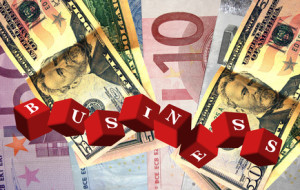 The world of forex is dominated by jargon. With everything from currencies to broker formats having their own acronym, trying to navigate the forex world can be a bit of a minefield. Here, however, we’ve broken down one of the key acronyms: ECN.
The world of forex is dominated by jargon. With everything from currencies to broker formats having their own acronym, trying to navigate the forex world can be a bit of a minefield. Here, however, we’ve broken down one of the key acronyms: ECN.
There’s always a huge debate about who’s the best broker to use and why some types of broker are better than others. Many people swear by using ECN brokers, but why? Here, we try to find out:
What is an ECN?
Foreign exchange brokers come in a variety of shapes, sizes and forms. Due to the fact that the foreign exchange market is unregulated, there’s no set format for brokers, and many deviate from the norm.
ECN brokers are a great example of this. Instead of being a standard broker, they are an automated system that buys and sells orders, connecting major brokerages and individuals who can trade without the need for a middleman.
How do ECNs Work?
Instead of earning money from the spread, ECN brokers will make money by charging a small fee for every transaction they broker. In taking out the middleman, ECNs make it possible for investors from all over the world, in a variety of locations, to trade with relative ease and speed. To monitor the market, each ECN broker must register as a broker-dealer with the Securities and Exchange Commission.
What’s Good About ECNs?
An ECN will show you the very best bid and ask quotes available, scouring the market and multiple participants automatically and instantly matching and executing orders on your behalf. As well as being used at major exchanges during market hours, they are also widely used out of hours on the forex market by those with an online trading account.

 Whether claims are due to natural disasters or man-made ones, the insurance industry has had several huge payouts to make over recent years. This list sums looks back at some of the biggest insurance payouts.
Whether claims are due to natural disasters or man-made ones, the insurance industry has had several huge payouts to make over recent years. This list sums looks back at some of the biggest insurance payouts. Periodic review of our personal finances extends to many areas. Portfolio rebalancing helps your investments match changing time horizons and risk tolerances. As our families grow or coverage options change, we must review our
Periodic review of our personal finances extends to many areas. Portfolio rebalancing helps your investments match changing time horizons and risk tolerances. As our families grow or coverage options change, we must review our 